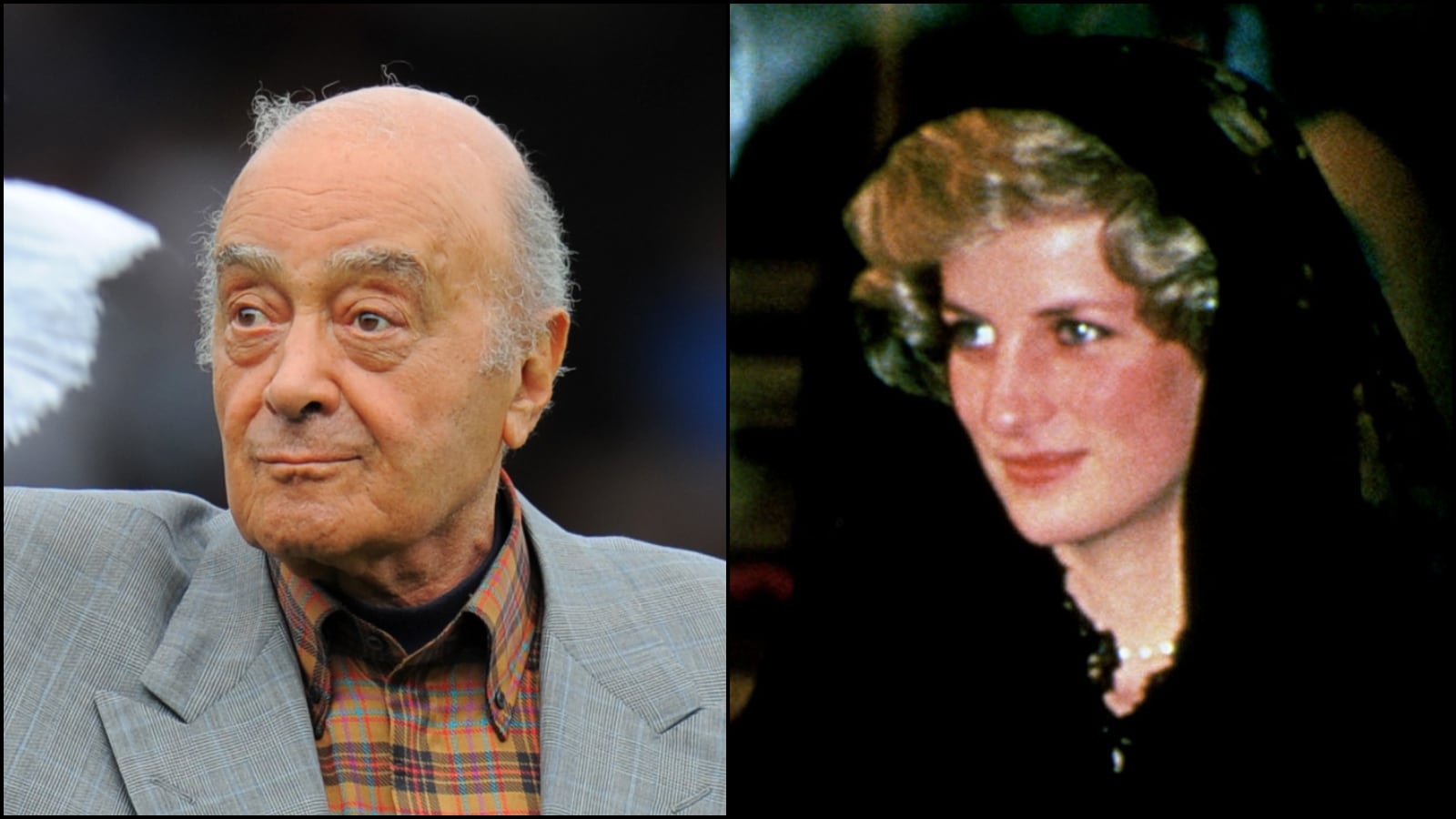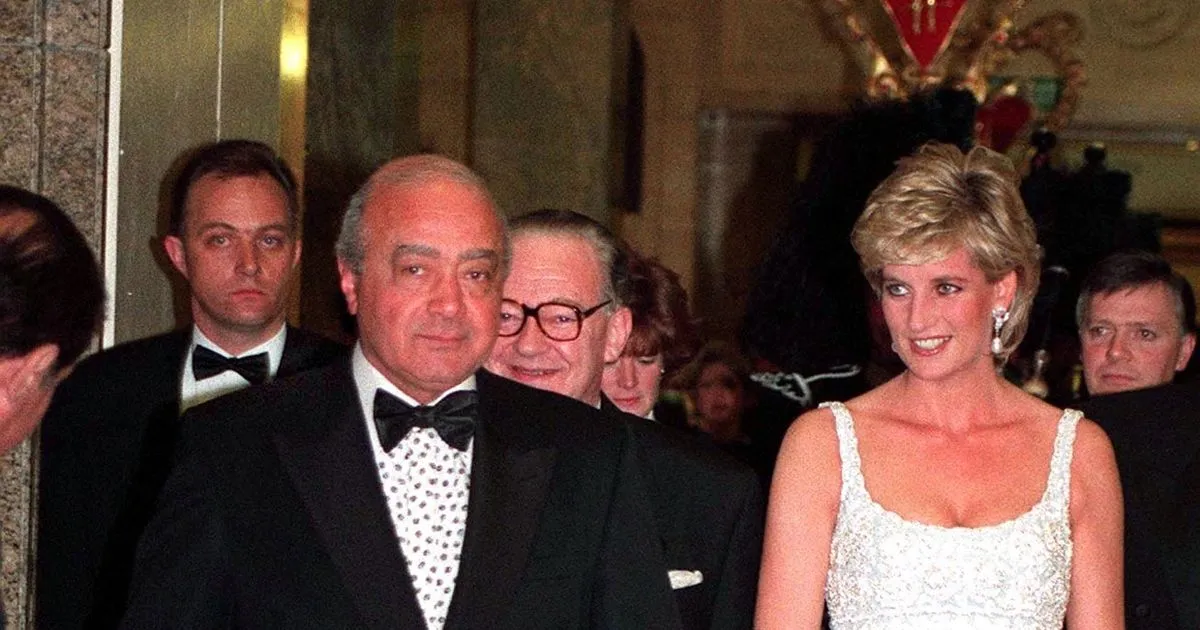Princess Diana’s tragic death in Paris on August 31, 1997, alongside Dodi Fayed, the son of businessman Mohamed Al Fayed, shocked the world and led to decades of public grief, speculation, and inquiry. While various conspiracy theories have circulated—including those promoted by Mohamed Al Fayed himself—multiple official investigations have concluded that Diana and Dodi died in a car crash caused by driver error and reckless pursuit by paparazzi.
The Crash in Paris: Verified Details
On the night of August 30–31, 1997, Diana, Princess of Wales, and Dodi Fayed left the Ritz Hotel in Paris, pursued by photographers. Their driver, Henri Paul, lost control of their Mercedes S280 in the Pont de l’Alma tunnel while attempting to evade paparazzi.
Key details established by official investigations:
- Driver intoxication: Henri Paul’s blood-alcohol level was found to be more than three times the French legal limit.
- Excessive speed: The car was traveling well above the speed limit.
- Paparazzi pursuit: Motorbike photographers were chasing the vehicle, contributing to pressure on the driver.
These facts were central to both the French judicial investigation (1999) and the UK’s Operation Paget (2004–2008)【source: UK Parliament Operation Paget Report (PDF)】.
Operation Paget: The UK’s Independent Investigation
Due to persistent conspiracy claims, especially from Mohamed Al Fayed, the UK’s Metropolitan Police launched Operation Paget in 2004. Led by Lord Stevens, the former Commissioner of the Met, this investigation thoroughly reviewed evidence over three years.
Key findings (published in 2006, summarized in the 2008 inquest):
- No evidence of conspiracy: Operation Paget found no credible evidence to support claims that Diana and Dodi were murdered.
- Unlawful killing verdict: The 2008 inquest jury returned a verdict of “unlawful killing” due to gross negligence by driver Henri Paul and the pursuing paparazzi.
- No state involvement: The investigation found no evidence of involvement by the UK intelligence services, MI6, or any branch of the Royal Family.
Sources:
- Operation Paget Report – UK Parliament (PDF)
- BBC News – Diana Inquest Verdict
Mohamed Al Fayed’s Allegations: Repeatedly Discredited
Mohamed Al Fayed, father of Dodi Fayed and former owner of Harrods, spent years publicly claiming that Diana and Dodi were murdered in a British state conspiracy.
Key points:
- Al Fayed alleged, without evidence, that British intelligence orchestrated the crash to prevent Diana from marrying a Muslim man.
- He claimed Diana was pregnant—a claim also disproven in the Paget investigation, which found no medical evidence of pregnancy.
- Al Fayed’s claims were dismissed by the 2008 inquest jury, which concluded that the deaths were due to driver negligence and the paparazzi pursuit.
Even Mohamed Al Fayed himself eventually stopped making these claims in public before his death in 2023【source: The Guardian, BBC News】.
Claims of Paying Spies: Context and Lack of Verified Evidence
Some media have reported over the years that Mohamed Al Fayed paid investigators or sought intelligence contacts in his private attempts to prove conspiracy theories. While such claims have appeared in outlets like The Telegraph, these reports typically cite unnamed sources or secondhand accounts without official documentation.
Crucially:
- No official inquiry—French, British, or otherwise—has confirmed that any foreign government or intelligence service supplied Fayed with proof supporting his allegations.
- Even Fayed’s private investigations failed to produce any evidence accepted by courts or formal inquiries.
Therefore, while Mohamed Al Fayed is known to have funded private inquiries and pursued leads, no reputable investigation has found evidence validating his conspiracy theories.

Public Reaction and Legacy
Princess Diana’s death remains one of the most profound tragedies in modern British history. Her funeral in September 1997 drew millions of mourners and was watched by an estimated 2.5 billion people globally【source: BBC News】.
Diana’s legacy:
- Humanitarian work on AIDS awareness, landmine clearance, and homelessness.
- Changed perceptions of the monarchy by connecting emotionally with the public.
- Inspired her sons, Prince William and Prince Harry, to continue charitable work, especially around mental health, veterans’ support, and youth engagement.
Prince William and Prince Harry have both spoken publicly about the trauma of losing their mother at such a young age, and the need for compassion and mental health support.

The Royal Family’s Position
The Royal Family has consistently declined to comment on conspiracy theories. Their public statements about Diana focus on honoring her charitable work and caring for her memory.
When Prince William and Prince Harry unveiled a statue of Diana in 2021, it was framed as a tribute to her role as a loving mother and humanitarian—not as an occasion to revisit conspiracy narratives【source: BBC News, Royal.uk】.

Conclusion: The Evidence Is Clear
Despite decades of speculation, there is no verified evidence supporting claims of conspiracy in Princess Diana and Dodi Fayed’s deaths.
Multiple thorough investigations—by French authorities, the UK Metropolitan Police’s Operation Paget, and a British coroner’s inquest—all concluded the deaths were the tragic result of reckless driving, intoxication, and the actions of paparazzi.
By focusing on reputable sources and verified facts, we can honor Princess Diana’s memory with the respect and truth her life and legacy deserve.
Verified Sources
- Operation Paget Report – UK Parliament
- BBC News – Diana Inquest Verdict
- Royal.uk – Official Royal Family Website
- Reuters – Official News Reporting
- Sky News – UK Royal Coverage
- The Guardian – Royal Family Analysis


